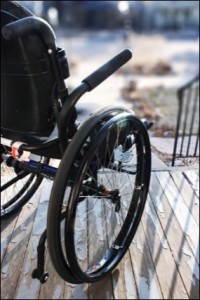Risk of Dehydration is higher in elders
As we grown older, the risk of dehydration increases. The sense of thirst becomes blunted. The total amount of fluids declines as a proportion of total body weight. Chronic diseases and medications can also lead to dehydration. Nursing home residents suffering from depression or dementia are often unable to seek water even if they feel thirst.
The symptoms of dehydration include:
• Skin tenting in the forehead
• Dark or concentrated urine
• Sunken eyes
• Dry mouth, skin and nasal passages
• Low blood pressure
• Tachycardia (racing heart)
• Weakness
• Dizziness
• Fatigue
Dehydration – Sign of Nursing Home Neglect
Neglect is a form of nursing home abuse and is the failure to provide food, water, clothing, shelter, hygiene, medication, safety and comfort by someone who is responsible for the resident. If water provided to the resident, it can lead to dehydration which can further lead to a variety of ailments, including tooth decay, broken bones, anemia, low blood pressure and even death.
A nursing home resident can suffer from dehydration for various reasons including:
• Reduction in mobility
• Willfully avoiding consumption of liquids in order to reduce the embarrassment of incontinence.
• Nursing home staff deliberately limiting the fluid intake in order to avoid the time-consuming tasks of changing diapers or bed sheets or escorting residents to the rest room.
Contact the injury lawyers at Columbus GA Law Firm if your elder relative is a victim of dehydration caused by nursing home neglect. From our offices in Columbus GA, we represent nursing home neglect victims all over Georgia. We have an unmatched reputation in getting nursing home neglect victims the compensation they deserve. We investigate and identify the neglect.
Contact us for a free initial consultation. You have nothing to loose. We will review your case and let you know the compensation you can get.






